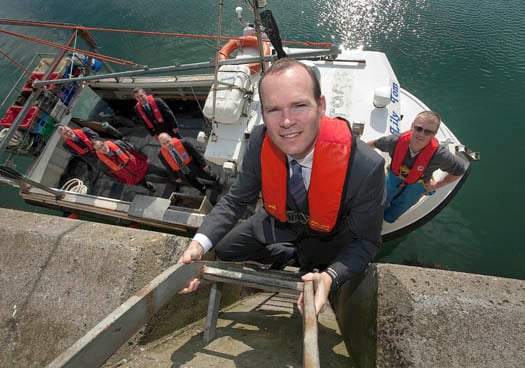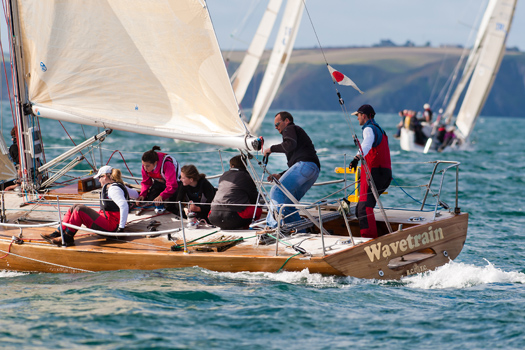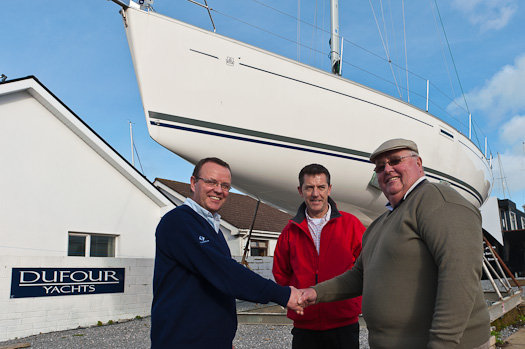Displaying items by tag: Hugh
Simon Coveney Appointed Marine Minister
Cork sailor Simon Coveney (38) has been appointed as Minister of Agriculture, Food and Marine in the new cabinet of the Fine Gael/Labour Government formed yesterday.
The announcement has been welcomed by various marine interests pleased to see Marine back at the cabinet for the first time since the Department was dismantled by Fianna Fail's Bertie Ahern in 2002.

Marine Minister Simon Coveney TD
The appointment means Taoiseach Enda Kenny has kept good an election promise to reinstate the Marine department. A decade of lost opportunties has meant the sector has suffered through lack of infrastructure and coastline planning.

Simon Coveney at the helm of his yacht Wavetrain. Photo: Bob Bateman
"Simon is someone who understands the Sea as a sailor himself but also in his work as an MEP where he was involved in a number of major European maritime projects. This is a great opportuinty for the Marine. We look forward to working with him to develop this untapped resource." said David O'Brien of the Irish Marine Federation.
Simon was first elected to the Dáil in 1998 as one of Fine Gael's youngest TD's aged 26. He replaced his father Hugh Coveney TD following his untimely death.
Simon follows his father in to the post of Marine Minister. Hugh held the post in 1994.
Simon holds a B.Sc. in Agriculture and Land Management from Royal Agriculture College, Gloucestershire. He was also educated at Clongowes Wood College, County Kildare; University College Cork, and Gurteen Agricultural College, County Tipperary.
A keen fan of all competitive sport he has worked as a sailing instructor at his club Royal Cork Yacht Club in Crosshaven and been involved in many sailing regattas.
In 1997/8 he led the "Sail Chernobyl Project" which involved sailing a boat 30,000 miles around the world and raising €650,000 for charity.
In 2006 he contributed to RTE's series The Harbour and in a memorable quote, the Cork TD and former MEP said: "When somebody asks me the question, what's the one thing that's special about Cork?, I'd say the harbour."
Hugh Mockler Joins Crosshaven Boatyard
Crosshaven Boatyard Company Ltd has announced that Hugh Mockler, (formerly of HM Yachts Ltd), is to join long established yacht broker, Donal McClement in the Boatyard's new boat and brokerage sales division.
Matt Foley, General Manager of Crosshaven Boatyard, told Afloat, 'Donal and Hugh are two of the best known and most successful Yacht Brokers in Ireland. Over the past number of years and their combined knowledge of a very difficult market will ensure that the buyers and sellers get a top class service'. Hugh and Donal will be able to give buyers and sellers the best possible advice.'
Crosshaven Boatyard has been providing marine services for over 60 years.
The boatyard also specialises in all aspects of the repair and maintenance of modern pleasure boats. Many well-known boats such as Gypsy Moth V, the Saint Brendan, Longbow II and a series of Moondusters were completed in the1980s.
It was the first commercial marina, with a marine travel hoist, in Ireland in 1979. The yard is the Irish distributor for Dufour Yachts of France, and Grand Soleil, of Italy.

Hugh Mockler (left) is greeted by General Manager Matt Foley (centre) and yacht broker Donal McClement. Photo: Bob Bateman































































